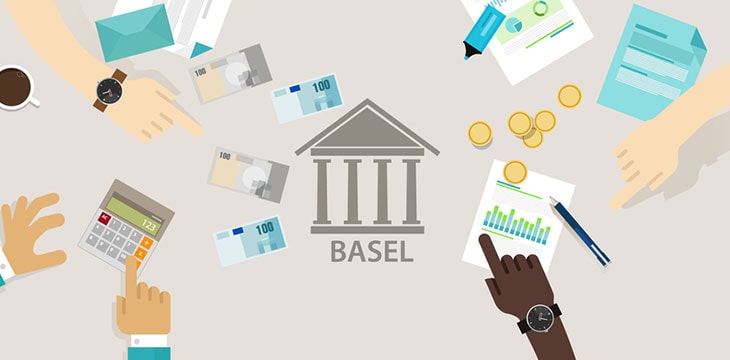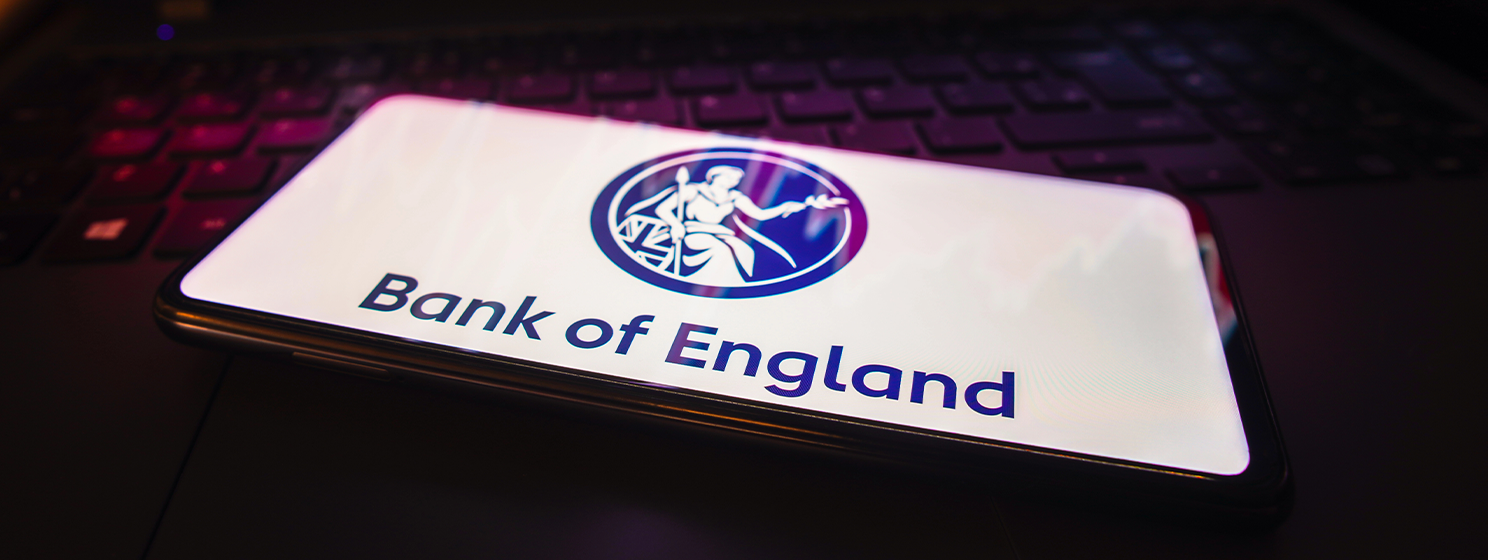|
Getting your Trinity Audio player ready...
|
Last month, the Basel Committee on Banking Supervision (BCBS) released its second—and likely final— public consultation document detailing the proposed guidelines for the prudential treatment of ‘crypto’ asset exposure for banks. The rules, once finalized, will set the minimum standards which internationally active banks must adhere to when dealing with digital currency assets, with individual jurisdictions able to supplement these requirements with additional, more restrictive measures, where deemed necessary.
The proposed guidelines build on an initial discussion document released in 2019 and a subsequent public consultative document in 2021, with the revised regulatory frameworks incorporating input garnered during the public comment phase. As a whole, the digital currency industry were exceedingly negative in its responses to the proposals, with The Bitcoin Association of Switzerland (not to be confused with the Switzerland-based Bitcoin Association for BSV) describing the initial proposals in their official comment filing as “so restrictive and so far away from a sensible approach that it is hard for us to comprehend how anyone could consider the draft fair and balanced.”
Similarly, publicly-listed digital asset exchange Coinbase (NASDAQ: COIN) wrote in its comment filing that “Overall, we view the aggregate impact of the proposal’s details as distinctly punitive, rather than merely conservative, going beyond what we understand from our deep experience to be the risks posed to banks by crypto assets. Taken as a whole, the proposal would render it economically unattractive for banks to participate in many parts of the crypto ecosystem, at a time when they are facing strong customer demand to offer such products and services. Banks’ exposures to crypto assets are currently limited; however, we believe maintaining this low level of involvement is undesirable and unsustainable in the longer run.”
Yet despite the wider ‘crypto’ industry voicing its collective disapproval at the significant limitations that the proposals would place on banks seeking to gain exposure to digital currency assets or offer ‘crypto’ based products to their clientele (despite the common rallying cry from ‘crypto-maximalists’ that crypto is here to replace the existing financial system entirely), the new rules contained in the proposals would actually make things more difficult and onerous for banks to put crypto assets on their balance sheets.
The restrictive proposals from Basel have of course come in the midst of a near-complete collapse of the ‘crypto’ asset market, with a litany of speculative tokens and digital assets with no underlying utility nosediving in price, as retail and institutional investors alike flee for safer stores of value. Such sentiment is a far cry from the height of the 2021 bull market when Wall Street and Main Street alike became ever more vocal about their desire for digital currency asset exposure.
In recent years, Wall Street institutions have repeatedly been denied permission by the Securities and Exchange Commission (SEC) to create investment products for digital currency assets, such as an exchange-traded fund—which Grayscale, a Digital Currency Group company (the same $10 billion behemoth with desires to become the Standard Oil of the crypto world that controls significant stakes in the likes of Coinbase, CoinDesk, FTX and more than 100 other digital asset businesses) has long clamored for. Conversely, it was the set of rules implemented in the wake of the 2008 global financial crisis that put an end to any ambitious crypto plans for Main Street. And with the Basel rules for digital currency set to be finalized by the end of the year, barring a significant shift in sentiment from regulators (a factor which would be essentially completely unheard of) that seems a reality set to remain for the foreseeable future.
But who are the Basel Committee on Banking Supervision and how do they exercise such significant influence over the global banking system?
The Basel Committee on Banking Supervision
Based in the sleepy Swiss city which shares its name—a place that the BBC once described as the “Swiss city where even fun is serious”—the Basel Committee on Banking Supervision is the most influential organization for the development of banking regulation and policy globally. Together with the International Organization of Securities Commissions (IOSCO) and the International Association of Insurance Supervisors (IAIS), the tripartite comprise the Joint Forum—a group which is responsible for the development of global regulation, guidance and best practice principles for financial conglomerates.
Formed in 1974 following the collapse of the Bretton Woods system, Basel’s membership was initially composed solely of the central banks of Group of Ten countries, but now extends to include 45 members (made up of central banks and bank supervisors) across 28 jurisdictions, representing the most powerful national banking institutions and their regulators on the planet (perhaps unsurprisingly, El Salvador’s Central Bank does not feature on this list).
Despite existing for more than 30 years prior, Basel came to mainstream prominence following the 2008 global financial crisis, when it published the third Basel Accord—colloquially known as Basel III—which set standards for global banks on liquidity, stress testing and capital adequacy. It mandated stringent restrictions on the quality of liquid assets and the permitted amount of leverage for banks, among others.
In large part, the 2008 crisis was triggered by the predatory lending practices and seemingly unrestrained risk-taking of many major banks—particularly in the U.S.—with the contagion that followed creating the necessary conditions for the European debt crisis which followed and ultimately causing a global recession. Preventing a reoccurrence has heavily influenced how banking policy has been constructed in the decade-plus since—much of which has emanated from Basel—with that same line of thinking evident in the approach that the organization is taking to the crypto asset industry.
In explaining the point of view motivating its proposals, the Committee said: “While the crypto asset market remains small relative to the size of the global financial system, and banks’ exposures to crypto assets are currently limited, its absolute size is meaningful and there continues to be rapid developments, with increased attention from a broad range of stakeholders. Crypto assets have given rise to a range of concerns including consumer protection, money laundering and terrorist financing, and their carbon footprint.”
It is important to understand, though, that as a supranational organization, the rules and regulations developed by Basel are not in and of themselves legally binding. There is no direct legal obligation for banks to implement the rules decided on by the committee. However, all member bodies of the Basel Committee make a commitment to adopting the rules and resolutions confirmed by the committee as a condition of their membership. Typically, member nations and their governing bodies will be given a time period during which they are expected to implement the rules through domestic legislation, after which the committee continues to monitor member nations for compliance. This is important, both for ensuring that global standards are followed for the benefit of banks and customers alike, but also to guarantee a level legislative and regulatory playing field for banks around the world to operate within.
The upshot for banks that operate within jurisdictions that fall within the bounds of Basel that are looking to gain exposure to crypto assets and offer these products for their customers, is that what the committee decides on this front, goes. In the second part of this series, we detail the proposed framework regulation for banks that has emerged from Basel and explore exactly why the less than reputable corners of the crypto industry have become so incensed about what it may mean for their personal pocketbooks.
Read Part 2 of this three-part editorial series, Basel banking proposals on crypto assets spell bad news for BTC bag holders, here.

 02-16-2026
02-16-2026 




